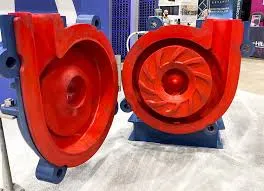Danish
- Afrikaans
- Albanian
- Amharic
- Arabic
- Armenian
- Azerbaijani
- Basque
- Belarusian
- Bengali
- Bosnian
- Bulgarian
- Catalan
- Cebuano
- Corsican
- Croatian
- Czech
- Danish
- Dutch
- English
- Esperanto
- Estonian
- Finnish
- French
- Frisian
- Galician
- Georgian
- German
- Greek
- Gujarati
- Haitian Creole
- hausa
- hawaiian
- Hebrew
- Hindi
- Miao
- Hungarian
- Icelandic
- igbo
- Indonesian
- irish
- Italian
- Japanese
- Javanese
- Kannada
- kazakh
- Khmer
- Rwandese
- Korean
- Kurdish
- Kyrgyz
- Lao
- Latin
- Latvian
- Lithuanian
- Luxembourgish
- Macedonian
- Malgashi
- Malay
- Malayalam
- Maltese
- Maori
- Marathi
- Mongolian
- Myanmar
- Nepali
- Norwegian
- Norwegian
- Occitan
- Pashto
- Persian
- Polish
- Portuguese
- Punjabi
- Romanian
- Russian
- Samoan
- Scottish Gaelic
- Serbian
- Sesotho
- Shona
- Sindhi
- Sinhala
- Slovak
- Slovenian
- Somali
- Spanish
- Sundanese
- Swahili
- Swedish
- Tagalog
- Tajik
- Tamil
- Tatar
- Telugu
- Thai
- Turkish
- Turkmen
- Ukrainian
- Urdu
- Uighur
- Uzbek
- Vietnamese
- Welsh
- Bantu
- Yiddish
- Yoruba
- Zulu
Telephone: +86 13120555503
Email: frank@cypump.com
nov . 21, 2024 17:43 Back to list
china slurry sump pump and spare parts supplier
Understanding the Importance of Quality Slurry Sump Pumps and Spare Parts in Industry
In various industrial applications, handling abrasive and viscous materials is a common challenge. Whether in mining, construction, or wastewater management, the need for reliable and efficient slurry pumps cannot be overstated. Among the prominent suppliers in the market, China has emerged as a key player in the production and supply of slurry sump pumps and spare parts. This article delves into the significance of these pumps and the crucial role played by their suppliers.
What are Slurry Sump Pumps?
Slurry sump pumps are specialized pumps designed to transport slurries, which are mixtures of solid particles and liquids. These pumps are critical in various sectors for their ability to handle materials that are too thick or abrasive for standard pumps. The design of slurry pumps typically incorporates features that enhance durability and performance, such as heavy-duty construction, special materials for wear resistance, and robust sealing systems to prevent leakage.
The Role of Suppliers
Suppliers in China have become renowned for providing high-quality slurry sump pumps and spare parts. With a vast manufacturing infrastructure and advanced technology, Chinese suppliers are equipped to meet the diverse needs of industries worldwide. They offer a range of products, including centrifugal slurry pumps, submersible slurry pumps, and replacement parts, ensuring that customers can find exactly what they need for their operations.
One of the advantages of working with suppliers from China is the ability to access a wide selection of products at competitive prices. This affordability does not come at the expense of quality. Many Chinese manufacturers are ISO-certified, adhering to international standards in production, which guarantees that the pumps and spare parts they produce are reliable and durable.
Quality Assurance and Customization
china slurry sump pump and spare parts supplier

Quality assurance is paramount when it comes to slurry pump performance. Suppliers in China often implement stringent quality control measures throughout the manufacturing process. This ensures that every pump and part meets the necessary specifications and can withstand the demanding conditions typically associated with slurry transportation.
Moreover, customization options are available for clients with specific requirements. Many suppliers can tailor their products to meet particular applications, whether it involves adjusting pump sizes, materials, or performance characteristics. This flexibility is especially beneficial in industries where unique challenges need to be addressed, allowing businesses to optimize their operations effectively.
Spare Parts Availability
Another critical aspect of slurry sump pumps is the availability of spare parts. Regular maintenance and timely replacement of worn-out parts are essential for keeping pump systems operational and minimizing downtime. Chinese suppliers often maintain a comprehensive inventory of spare parts, ensuring that customers can quickly access necessary components for repairs and replacements.
Furthermore, the shipping and logistics capabilities of suppliers in China have improved significantly, allowing for expeditious delivery of both pumps and spare parts. This efficiency not only helps reduce lead times but also supports industries in maintaining their productivity.
Conclusion
In conclusion, slurry sump pumps play a vital role in many industrial applications, requiring durability and efficiency in handling challenging materials. Chinese suppliers have established themselves as leaders in the market, offering high-quality pumps and spare parts at competitive prices. Their commitment to quality assurance, customization options, and reliable spare parts availability make them invaluable partners for industries relying on effective slurry management solutions. As businesses continue to seek efficiency and reliability, the importance of these suppliers will only grow, helping to meet the ever-evolving demands of the industry.
-
Heavy-Duty Mining Sludge Pumps - Wear-Resistant Slurry Handling
NewsAug.02,2025
-
Horizontal Split Case Pump with GPT-4 Turbo | High Efficiency
NewsAug.01,2025
-
ISG Series Pipeline Pump - Chi Yuan Pumps | High Efficiency, Durable Design
NewsAug.01,2025
-
Advanced Flue Gas Desulfurization Pump with GPT-4 Turbo | Durable & Efficient
NewsJul.31,2025
-
ISG Series Vertical Pipeline Pump - Chi Yuan Pumps | Advanced Hydraulic Design&Durable Construction
NewsJul.31,2025
-
ISG Series Vertical Pipeline Pump - Chi Yuan Pumps | Energy Efficient & Low Noise
NewsJul.31,2025










